- Home
- Melody Carlson
Crystal Lies Page 5
Crystal Lies Read online
Page 5
But when I got home, no one was there. And judging by the neatly made bed in our room, I knew no one had been there. I checked the message machine and found two messages. I pushed the button and waited.
“Hi, Glennis. This is Sherry, just checking to see how you’re doing. You’ve been on my heart these past couple of days, and I’m praying for you. Give me a call. We should do lunch or something.”
I thought about Sherry as I waited for the next message. Perhaps I should give her a call.
“This is Russ at the lumberyard, looking for Jacob this morning. If he doesn’t show for work today, you can tell him he doesn’t need to come back here at all.” And, almost like an exclamation point, this was followed by a loud beep.
I erased both messages and looked around the kitchen, amazed at how huge it was compared to the tiny apartment. Two completely different worlds. I could hear Rufus whining at the back door. He probably hadn’t been fed since yesterday. And the cat, Winnie, was nowhere to be seen. But that wasn’t so unusual. I went out to the laundry room and refilled Rufus’s water and food dishes as his tail beat happily against my leg.
“How’re you doing, old boy?” I asked, leaning over to pet his scraggly coat. Rufus was a terrier mix mutt that Jacob had brought home about ten years ago. He’d found the abandoned puppy on the street, and, despite Geoffrey’s allergies, there was no way I could deny my son this sad-eyed puppy. It had been agreed that Rufus’s domain would become the laundry room, a place where Geoffrey never went anyway, and we would install a doggy door that led to the backyard. Jacob would be the primary caregiver, although that didn’t last long. Soon I was tending to not only Rufus but also Winnie, the Blue Persian kitten that Sarah insisted she must have after our no-pet rules had been set aside for Rufus. The same restrictions applied to Sarah’s cat, but after a while the pets seemed to come and go with more freedom, and Geoffrey’s allergies seemed to magically disappear. I wondered now if he’d ever really had them at all. Perhaps it had just been a convenient excuse to exist in a pet-free world during the first fifteen years of our marriage. I refilled the cat’s water and food dishes and went back into the house.
I walked into the sunlit family room and looked around. The room was so perfect that it looked like a page torn from a design catalog. Of course, this had more to do with Geoffrey than myself. His taste had always ruled in our home, even when we were first married and his grandparents had generously purchased our first home as a wedding gift for us. Certainly, it was a modest home, at least compared to this one, but at the time it had seemed like a small palace to me. It was a brand-new, one-story ranch with three bedrooms and two baths. Perhaps it wasn’t exactly the sort of house I would’ve chosen, but then I hadn’t been asked. Just the same, I remember feeling a bit like a princess as I walked from room to room admiring the squeaky-clean newness of it all. I had imagined picking out warm and cozy furnishings, perhaps in the country style that was becoming popular at the time. I told Geoffrey my ideas, but he just smiled in a knowing sort of way.
“No need to worry about that,” he’d assured me. “My grandmother is doing a little redecorating, and she wants to give us most of her old furniture.”
Now I’d been to his grandparents’ expensive hilltop home several times, and while it was quite lovely and the furnishings were top of the line, they were definitely not my style. “But isn’t everything blue?” I’d asked. “And dated?”
“Blue is my favorite color,” he told me. “And the designs are classic.”
I suppose it was my own fault that I never admitted blue was among my least favorite colors. I’d always felt it was cold and formal and nothing like the sort of interiors I’d have chosen. But I convinced myself it was kind of his grandparents, and Geoffrey had assured me this would allow us to save money for our next home as well as the new furnishings to go with it. Meanwhile, I’d put up with blue velvet couches and complementing chairs, formal dark wood pieces, Asian lamps, and those numerous Oriental carpets I actually learned to appreciate in time.
And, true to Geoffrey’s promise, we eventually built this house and furnished it with new pieces. My plan, at that time, had been to select some attractive but comfortable neutral-tone furnishings, to bring in some informal antiques in golden oak tones, and then accent with warm and vibrant colors. But Geoffrey had seen it differently. After numerous long-winded discussions during which I was reminded that our home wasn’t just for family enjoyment but also for entertaining clients, I finally succumbed to his design plan. And that was how our new home came to be furnished with two low-slung navy blue leather couches along with a number of other very contemporary pieces Geoffrey had found at a Scandinavian design store. He’d been assisted by a tall blond woman named Ingrid, who I suspected had made up the name as well as the accent to go along with the job. Naturally, I’d kept these thoughts to myself.
The only things I really liked about our interior design was the rich color of the oak floors and the old Oriental carpets that I had managed to convince Geoffrey to keep. “For sentimental purposes,” I’d told him. Of course, I also liked the high vaulted ceilings and wide expanse of windows that looked down the hill to the city below. But those navy blue sofas always left me feeling chilled. And even in the summertime, I’d find myself reaching for the thick chenille blanket that I always kept handy It was a bright cranberry color that Geoffrey said looked garish but I liked. I picked up the blanket now, holding it close to me.
“What are you doing?” I asked myself. My voice sounded hollow and empty, lost in all the space of the house. Then I wrapped the chenille throw around me and sat down on the leather sofa and attempted to think, trying to remember what exactly had brought me to this place of confusion and unrest. Surely it wasn’t just the condition of my garden.
I knew that Geoffrey and I had argued yesterday. Nothing new about that, at least not lately, not since our son had begun pushing and pulling us in every imaginable direction. But then Geoffrey had engaged with Jacob, even to the point of getting physical, and then he’d told him in no uncertain terms to leave our home. He’d actually told our son he wasn’t welcome here anymore. That was what had cut so deeply. But was that really why I’d left? I felt confused, unsure about almost everything. What was it that had really made me give up like this?
Of course I’d been devastated to discover the sorry state of my garden—not unlike the sorry state of my life. But that was no reason to leave my husband of twenty-five years. Only a crazy woman would do that. Really, I had to ask myself, what was going on here? Was this how people ended up in mental hospitals? I stood up and walked over to the door of Geoffrey’s study. As always, everything was in its perfect place. I had usually avoided this room, had never felt comfortable or welcome there. But today I walked in and looked around. I sat down in the big leather chair at his desk and tried to imagine what it felt like to be Geoffrey Harmon. And for the first time in a long time I wondered if he was happy. He sure didn’t seem happy. And more and more lately he seemed to be particularly unhappy with me. It was as if I could never quite measure up to his expectations. I absently pulled open the top drawer of his desk to find everything in its place. But a blank, white envelope caught my attention. I opened it to find several photographs that appeared to have been taken at city hall, apparently on Geoffrey’s last birthday (his fiftieth) since he was the center of attention and standing in front of a big sheet cake. I flipped through the photos and started to replace the envelope when something stopped me. I took a second look at a photo where Geoffrey was standing with the city manager, Judith Ramsey. Several other city employees were in the picture as well, but something about the expressions on both Judith’s and Geoffrey’s faces stopped me. They both looked so happy. I couldn’t remember the last time I’d seen Geoffrey looking that happy Or maybe, like so many other things, I’d missed it.
I put the photos back in the envelope, replacing them in their exact spot in the desk, and in that same moment it occurred to me with th
e kind of clarity I hadn’t experienced in some time that Geoffrey didn’t love me anymore. Crazy as it seemed, I felt certain that was the truth. And I felt just as certain that it was time to go. The chenille blanket was still wrapped around my shoulders, and I realized that it really belonged to me and that I was going to take it with me. But why stop at the blanket? There were several items that Geoffrey would never want or need or even miss. Things I had picked out to comfort me and make this house more to my tastes, cozier.
And so I found a few boxes and laundry baskets, and I began to gather candles, pillows, linens, dishes—special things I had selected and Geoffrey had tolerated—and to take those things out to the Range Rover.
“Looks like you’re moving,” called my neighbor Elaine as she watered a pot of petunias in front of her house.
“Just clearing out a few things,” I called back to her. I wasn’t eager to have all of Stafford in on our personal business just yet. And everyone knew that Elaine Hodges was something of a gossip.
“You getting rid of those?” she called, coming closer, the hose hanging limply in her hand as she peered at the stack of jewel-toned pillows in my arms.
“Oh, they’re for Sarah,” I told her. “She needed some things for her dorm room this fall.”
Elaine frowned. “Pretty nice threads for a dorm room, don’t you think?”
I smiled. “Oh, you know how it goes, Elaine. Nothings too good for your kids, right?”
She nodded but looked unconvinced, and I hurried back into the house and closed the door, my heart pounding in my ears as I leaned against it. I don’t know why I felt like a thief, but I did. What was I taking really? Only the kinds of things Geoffrey would gladly toss out if given the opportunity. And, after all, I reminded myself, it was only yesterday that he’d tossed out his own son. I was only making it easier for him.
It wasn’t long before the Range Rover was packed full and I was driving back across town, feeling like both a thief and a fugitive. But before I headed to the apartment, I decided to swing by the lumber yard to see if Jacob’s Subaru was there. Unfortunately, it was not. I knew this meant that my son was jobless again. How was he supposed to survive on the streets without a job or money? What exactly was Geoffrey trying to accomplish with his little plan? Did he want Jacob to sell himself for money? To become a drug dealer? To wind up in prison or to die in a gutter somewhere?
“No,” I told myself as I pulled into my parking spot, number thirty-six,“you are not a thief or a fugitive. You are simply a mother who loves her son and wants to make a place for him to come home to. It might not be much, but it’s better than the streets or jail.”
By noon I had hauled all my salvaged items into the apartment, which was beginning to look quite crowded despite the lack of actual furnishings. But that was mostly due to the fact that I had dumped everything onto the floor in what I must admit was a rather dysfunctional manner. But then I wondered why I should even care. Why should I expect anything about my life to be functional anymore?
I stood and stared at the colorful heaps piled around my ankles. It looked as if my other house had regurgitated all the items that my husband had never wanted, and somehow they had landed here in this shabby little place, along with me. But then I suspected my husband would be glad to be rid of me as well.
My plan was to take a quick shower and return to the house to pick up a few larger items that I hadn’t been able fit into my first load. One was an old oak rocker that had belonged to my grandmother. Another was a small dresser I’d had as a child. And then there was the small pine table that had been from my father’s side of the family.
I desperately hoped I wouldn’t find Geoffrey at home. That would be out of character for him at this time of day, but then he hadn’t gone home last night either. Nor had he left a message on either my cell phone or the home phone. That was out of character too. But I spied no sleek, black Porsche in the driveway and knew I was probably home free again since he rarely parked his car in the garage in the middle of the day.
Hoping to avoid the watchful eye of my neighbor, I opened the garage door and backed the Range Rover into it so I could quickly load my items and escape without further questions. Just as I was lugging the dresser through the kitchen, I heard the phone ringing. I paused long enough to listen to the answering machine pick it up, and then I heard Sherry’s voice again.
“Sorry to bother you, Glennis,” she was saying. “But I just keep thinking of—”
I snatched the phone and breathlessly said,“Hello.”
“Oh, Glennis,” she said, relief in her voice. “Am I catching you at a bad time?”
“Well, sort of.” I glanced at the dresser in the middle of the kitchen.
“I’m sorry. Do you want me to call back later?”
“How about if I call you back on my cell in just a few minutes?”
“Great. I’ll be waiting for you.”
“Better yet,”—I felt a wave of hunger coming over me—“can you meet me for lunch at…” I was trying to think of a place away from downtown and city hall or anyplace where I might run into Geoffrey.
“How about Ziddies?” she suggested.
“Perfect,” I said in relief since Ziddies was a new lunch spot near the mall, a place where Geoffrey would never think to go. “Sure, I’d love to. When?”
I glanced at my watch. It was already one fifteen. “How about one thirty?”
“Great, I’ll be there.”
So I managed to get the dresser safely loaded onto the blanket that I’d spread out over the backseat of the Range Rover. I knew Geoffrey would be furious if I damaged the precious leather seats. At the same time, I wondered why I even cared. Habit, I guess. Geoffrey had picked out this Range Rover when both kids were still in high school. He said it was the “perfect family vehicle,” although I had suspected he simply liked the idea of driving one of the most expensive rigs in town. For several years he was the primary driver of the Range Rover and parked it in prominent places at city hall as if to proclaim to anyone paying attention that Geoffrey Harmon had made it in this town… that the city attorney was a big success. But after a few years, he had grown tired of the Range Rover’s size, or so he said, and that’s when he urged me to trade in my old Mercedes for his new Porsche. Naturally, I became the driver of the slightly used Range Rover. At first I had balked at the size, but I soon grew accustomed to the luxury of this quality SUV and began to think of it as my own. How long would that continue, I wondered as I locked the back door to what used to be my house. Then I got in the Range Rover and left, without looking back even once.
I spotted Sherry in a corner booth, already sipping a coffee. “Sorry to be late,” I told her as I slid in across from her.
“No problem.” She smiled. “It sounded like you were busy What’re you up to these days?”
I sighed. “It’s a long story.”
She nodded and handed me a menu. “I’ve got time.”
I nervously glanced around the restaurant, not sure whom I expected to see, but thankful not to recognize any of the faces. Then I skimmed the menu and decided on the turkey-and-apple salad just as the waitress arrived to take our orders.
“Now, don’t take this wrong,” began Sherry after the waitress had left,“but you don’t look so good.”
“Yeah, I can imagine.”
“I know you’ve been going through the wringer with Jacob this summer,” she continued,“but you still need to take care of yourself.”
Sherry was the only person I’d been able to confide in about Jacob. And then only partially. She had no idea that he was using drugs. She thought he was just going through a little rebellious period and partying like so many of the kids in our town seemed to do. The same way her own two sons had done not so many years ago. But now her boys were doing fine, and she would often tell me that, as if to reassure me that it would soon be the case with Jacob as well.
I weighed my options as I watched her stirring her coffee. I could sp
ill my guts and risk shocking her so badly that I would lose her friendship entirely—if that was possible, and I wasn’t even sure. Or I could skim the surface as I usually did and risk the chance that she’d find out about everything soon enough and be mad at me for not having come clean sooner. Although Sherry, more than anyone I knew, was not a person to hold a grudge. She was the most gracious friend I’d ever had, and now, perhaps more than ever, I needed that.
“Things have gotten worse,” I told her.
She frowned. “I’m sorry.”
“So am I.”
“Is it Jacob?”
“It’s Jacob and Geoffrey and me.” I shook my head. “It’s all of us, I suppose.”
“What’s going on, Glennis?”
“I’ve left Geoffrey.”
Her blue eyes grew wide. “No, you’re not serious? When? What happened?”
And so I began to tell her about Jacob’s arrest and the fight over bailing him out and how Geoffrey had thrown his own son out. I paused as the waitress brought us our order.
“But, Glennis,” said Sherry after the waitress left again,“you don’t want to leave Geoffrey just because he threw Jacob out. Do you?”
“It’s more than that,” I told her in a tired voice. “It’s like I couldn’t breathe in that house anymore. It’s like I never belonged there in the first place. I mean as long as everything was absolutely picture perfect, as long as we all stayed in our proper places and played our perfect little roles, well, then Geoffrey was happy. But one wrong step, one false move, and Geoffrey would be on us like—” I stopped speaking when I saw a familiar face coming into the restaurant.

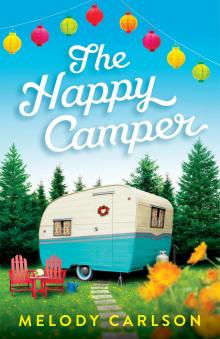 The Happy Camper
The Happy Camper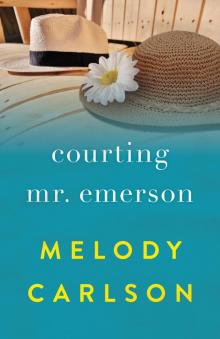 Courting Mr. Emerson
Courting Mr. Emerson The Christmas Swap
The Christmas Swap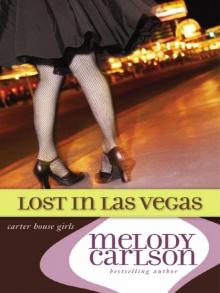 Lost in Las Vegas
Lost in Las Vegas The Christmas Shoppe
The Christmas Shoppe Becoming Me
Becoming Me Finding Alice
Finding Alice Payback
Payback All for One
All for One Under a Summer Sky--A Savannah Romance
Under a Summer Sky--A Savannah Romance Face the Music
Face the Music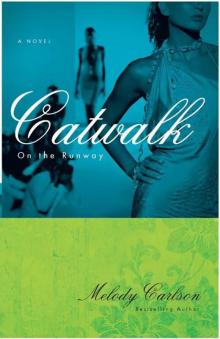 Catwalk
Catwalk Never Been Kissed
Never Been Kissed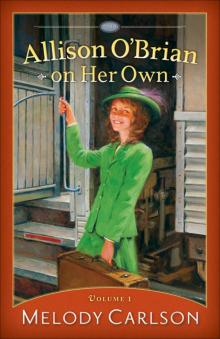 Allison O'Brian on Her Own
Allison O'Brian on Her Own An Irish Christmas
An Irish Christmas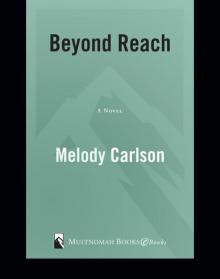 Beyond Reach
Beyond Reach Faded Denim: Color Me Trapped
Faded Denim: Color Me Trapped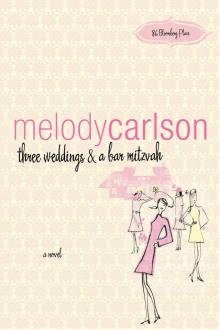 Three Weddings and a Bar Mitzvah
Three Weddings and a Bar Mitzvah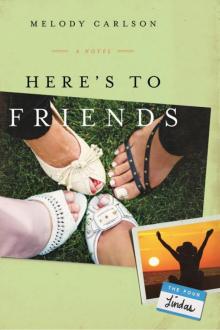 Here's to Friends
Here's to Friends On My Own
On My Own River's Call
River's Call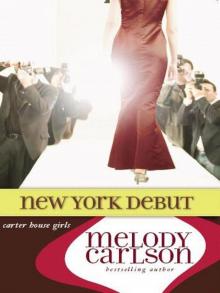 New York Debut
New York Debut Homeward
Homeward Love Finds You in Sisters, Oregon
Love Finds You in Sisters, Oregon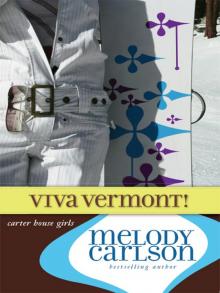 Viva Vermont!
Viva Vermont! Notes from a Spinning Planet—Ireland
Notes from a Spinning Planet—Ireland Harsh Pink with Bonus Content
Harsh Pink with Bonus Content Perfect Alibi
Perfect Alibi The Christmas Pony
The Christmas Pony All Summer Long
All Summer Long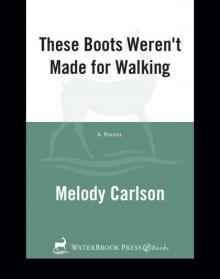 These Boots Weren't Made for Walking
These Boots Weren't Made for Walking Back Home Again
Back Home Again Torch Red: Color Me Torn with Bonus Content
Torch Red: Color Me Torn with Bonus Content Bitter Rose
Bitter Rose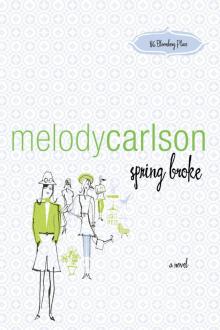 Spring Broke
Spring Broke Sold Out
Sold Out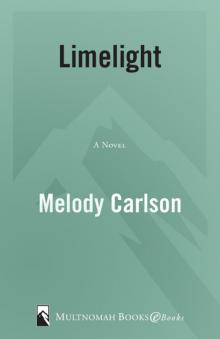 LimeLight
LimeLight Double Date
Double Date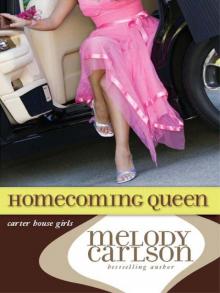 Homecoming Queen
Homecoming Queen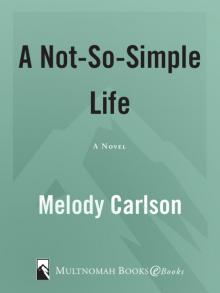 A Not-So-Simple Life
A Not-So-Simple Life My Name Is Chloe
My Name Is Chloe My Amish Boyfriend
My Amish Boyfriend Once Upon a Summertime
Once Upon a Summertime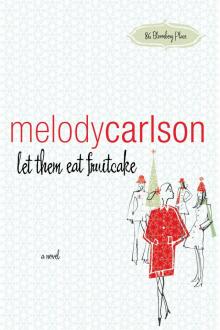 Let Them Eat Fruitcake
Let Them Eat Fruitcake Deep Green: Color Me Jealous with Bonus Content
Deep Green: Color Me Jealous with Bonus Content The Joy of Christmas
The Joy of Christmas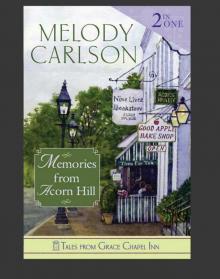 Memories from Acorn Hill
Memories from Acorn Hill Premiere
Premiere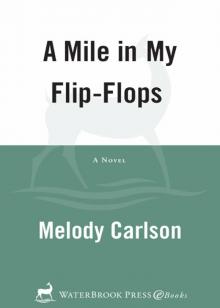 A Mile in My Flip-Flops
A Mile in My Flip-Flops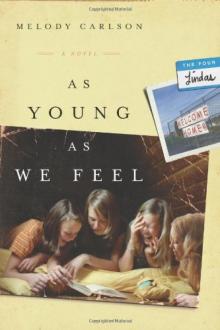 As Young As We Feel
As Young As We Feel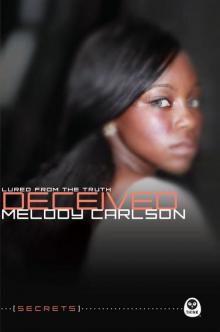 Deceived: Lured from the Truth (Secrets)
Deceived: Lured from the Truth (Secrets) Take Charge
Take Charge Road Trip
Road Trip A Simple Song
A Simple Song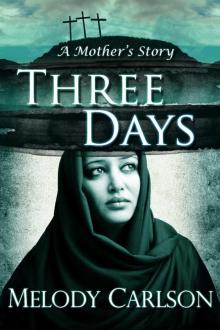 Three Days: A Mother's Story
Three Days: A Mother's Story A Dream for Tomorrow
A Dream for Tomorrow Looking for Cassandra Jane (The Second Chances Novels)
Looking for Cassandra Jane (The Second Chances Novels)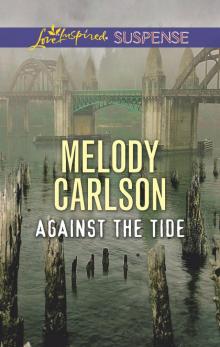 Against the Tide
Against the Tide Your Heart's Desire
Your Heart's Desire The Christmas Blessing
The Christmas Blessing Love Gently Falling
Love Gently Falling On This Day
On This Day The Christmas Joy Ride
The Christmas Joy Ride Ciao
Ciao The Christmas Bus
The Christmas Bus Blade Silver: Color Me Scarred
Blade Silver: Color Me Scarred Dating Games #1
Dating Games #1 Double Take
Double Take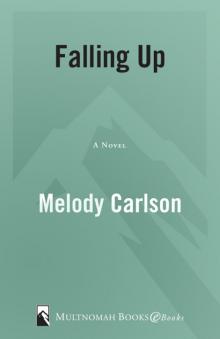 Falling Up
Falling Up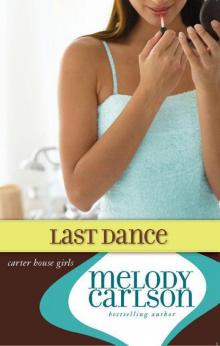 Last Dance
Last Dance Westward Hearts
Westward Hearts Glamour
Glamour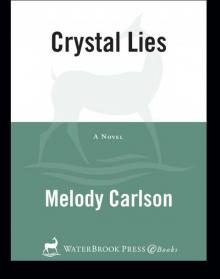 Crystal Lies
Crystal Lies The Best Friend
The Best Friend Prom Date
Prom Date The Christmas Angel Project
The Christmas Angel Project Raising Faith
Raising Faith The 'Naturals: Awakening (Episodes 1-4 -- Season 1) (The 'Naturals: Awakening Season One Boxset)
The 'Naturals: Awakening (Episodes 1-4 -- Season 1) (The 'Naturals: Awakening Season One Boxset)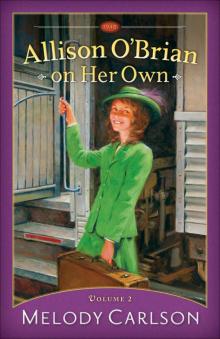 Allison O'Brian on Her Own, Volume 2
Allison O'Brian on Her Own, Volume 2 Notes from a Spinning Planet—Papua New Guinea
Notes from a Spinning Planet—Papua New Guinea Once Upon a Winter's Heart
Once Upon a Winter's Heart Damaged
Damaged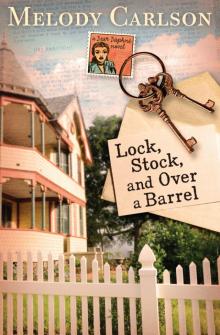 Lock, Stock, and Over a Barrel
Lock, Stock, and Over a Barrel Hometown Ties
Hometown Ties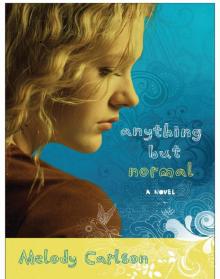 Anything but Normal
Anything but Normal Jerk Magnet, The (Life at Kingston High Book #1)
Jerk Magnet, The (Life at Kingston High Book #1) Damaged: A Violated Trust (Secrets)
Damaged: A Violated Trust (Secrets) Fool's Gold
Fool's Gold Girl Power
Girl Power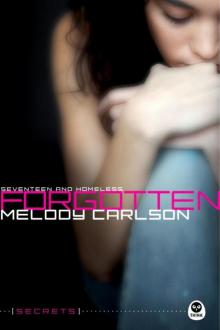 Forgotten: Seventeen and Homeless
Forgotten: Seventeen and Homeless Trading Secrets
Trading Secrets Blood Sisters
Blood Sisters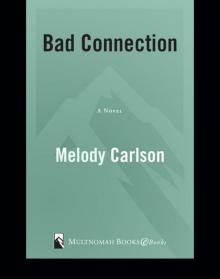 Bad Connection
Bad Connection Spotlight
Spotlight A Simple Christmas Wish
A Simple Christmas Wish Love Finds You in Martha's Vineyard
Love Finds You in Martha's Vineyard Angels in the Snow
Angels in the Snow A Christmas by the Sea
A Christmas by the Sea It's My Life
It's My Life Mixed Bags
Mixed Bags The Christmas Dog
The Christmas Dog Secret Admirer
Secret Admirer Love Finds You in Pendleton, Oregon
Love Finds You in Pendleton, Oregon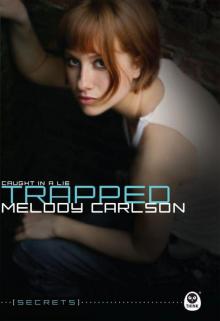 Trapped: Caught in a Lie (Secrets)
Trapped: Caught in a Lie (Secrets) The Gift of Christmas Present
The Gift of Christmas Present Hidden History
Hidden History Meant to Be
Meant to Be The Treasure of Christmas
The Treasure of Christmas Just Another Girl
Just Another Girl River's Song - The Inn at Shining Waters Series
River's Song - The Inn at Shining Waters Series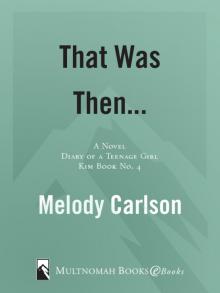 That Was Then...
That Was Then... Burnt Orange
Burnt Orange Spring Breakdown
Spring Breakdown The Christmas Cat
The Christmas Cat Christmas at Harrington's
Christmas at Harrington's